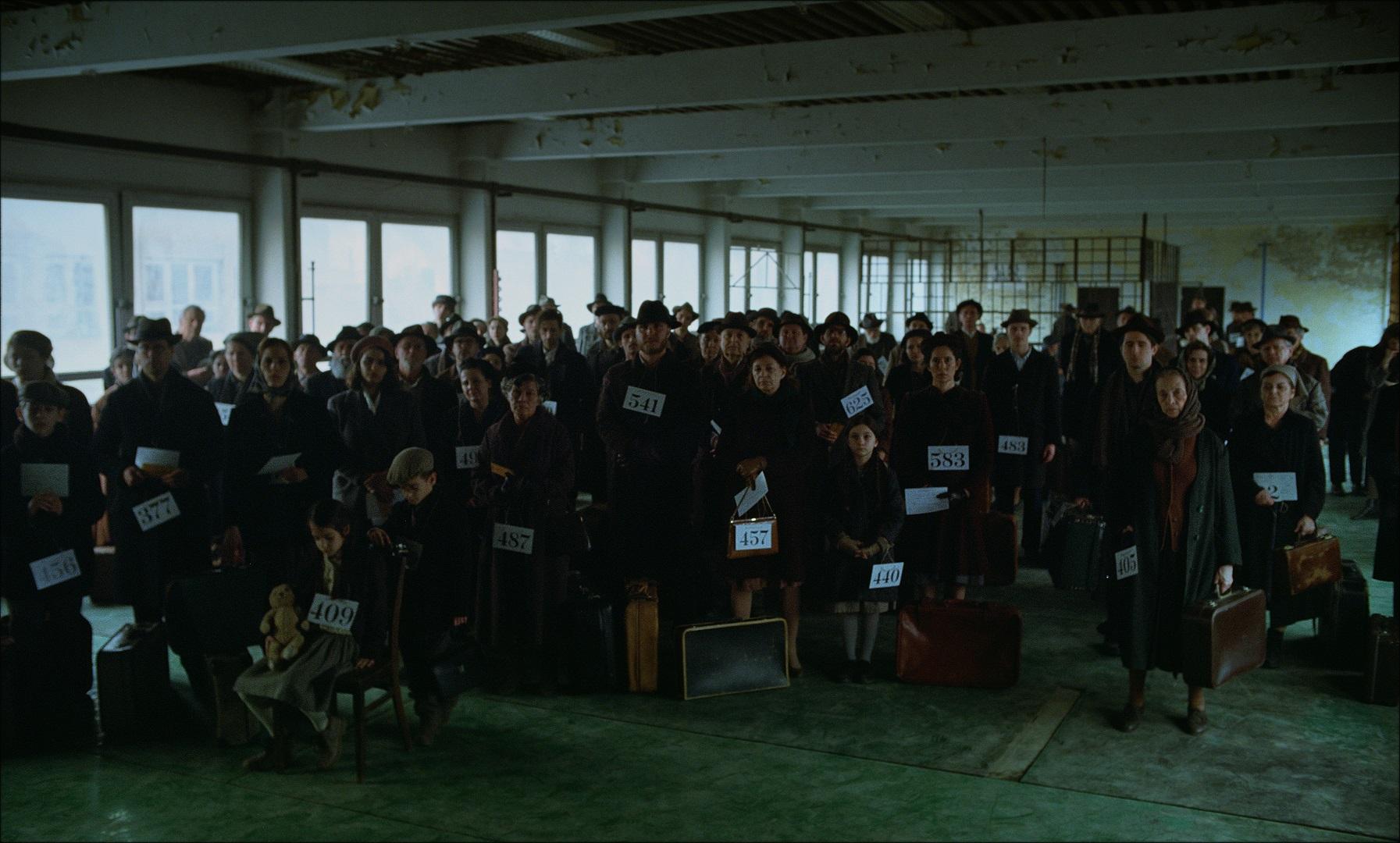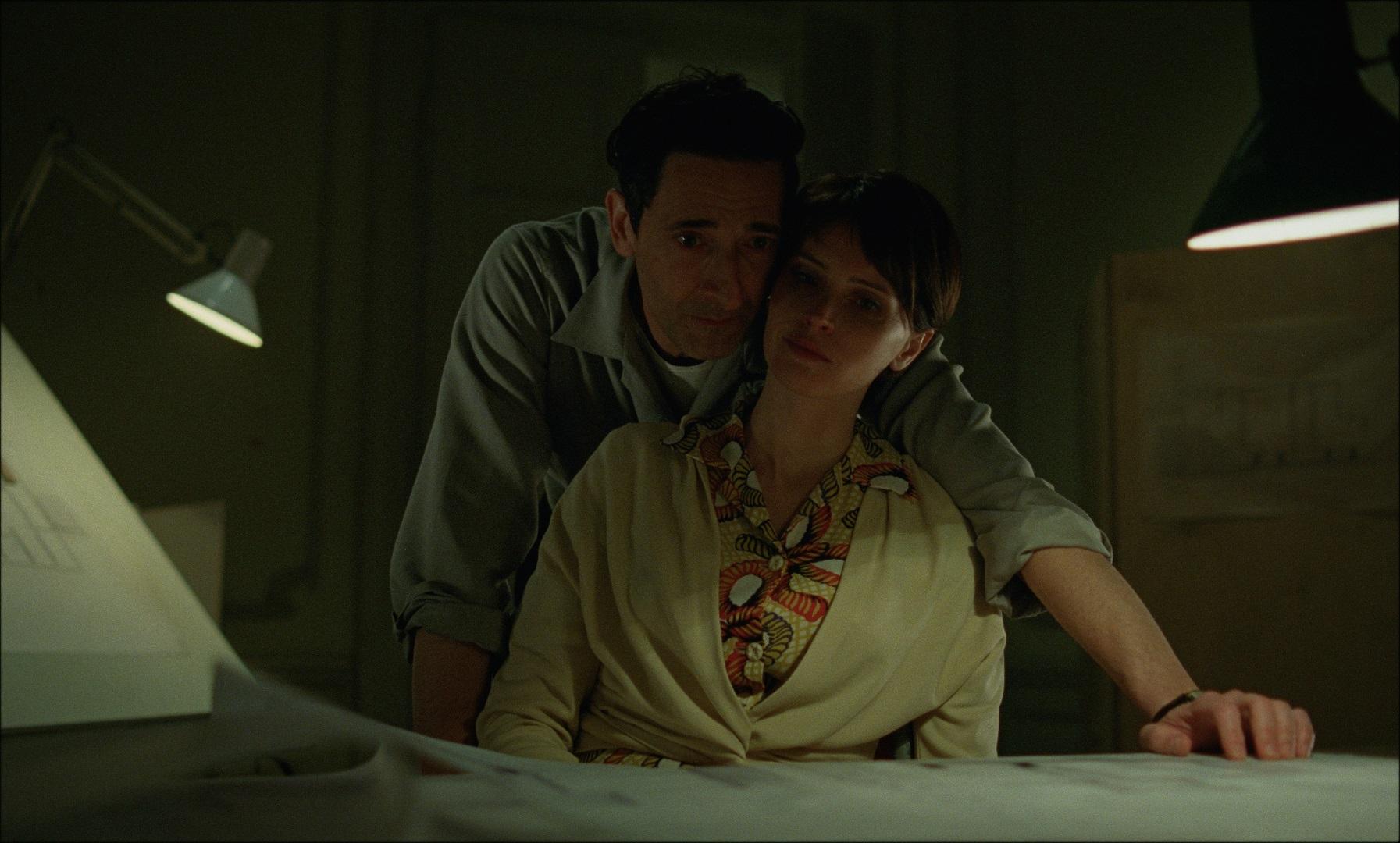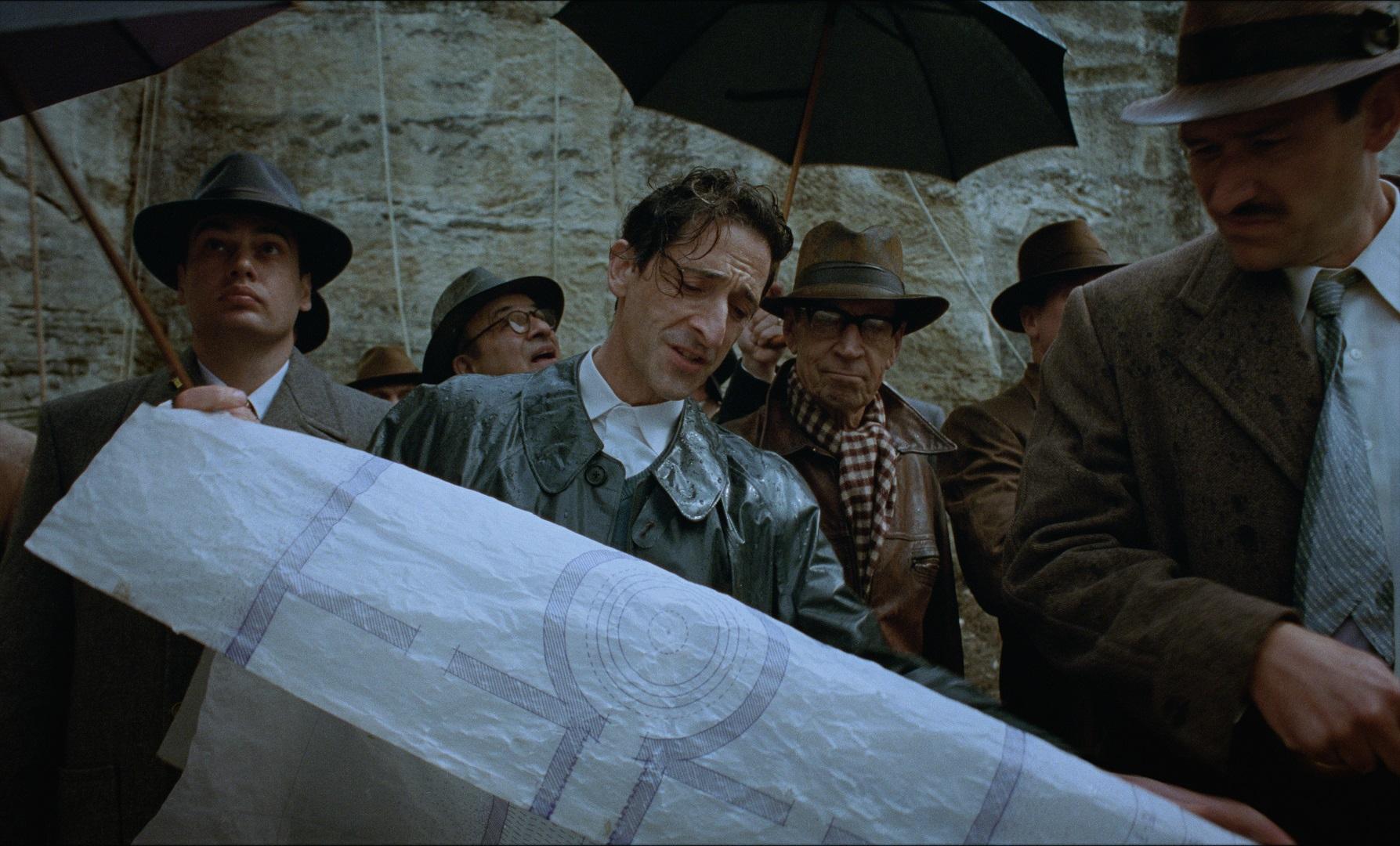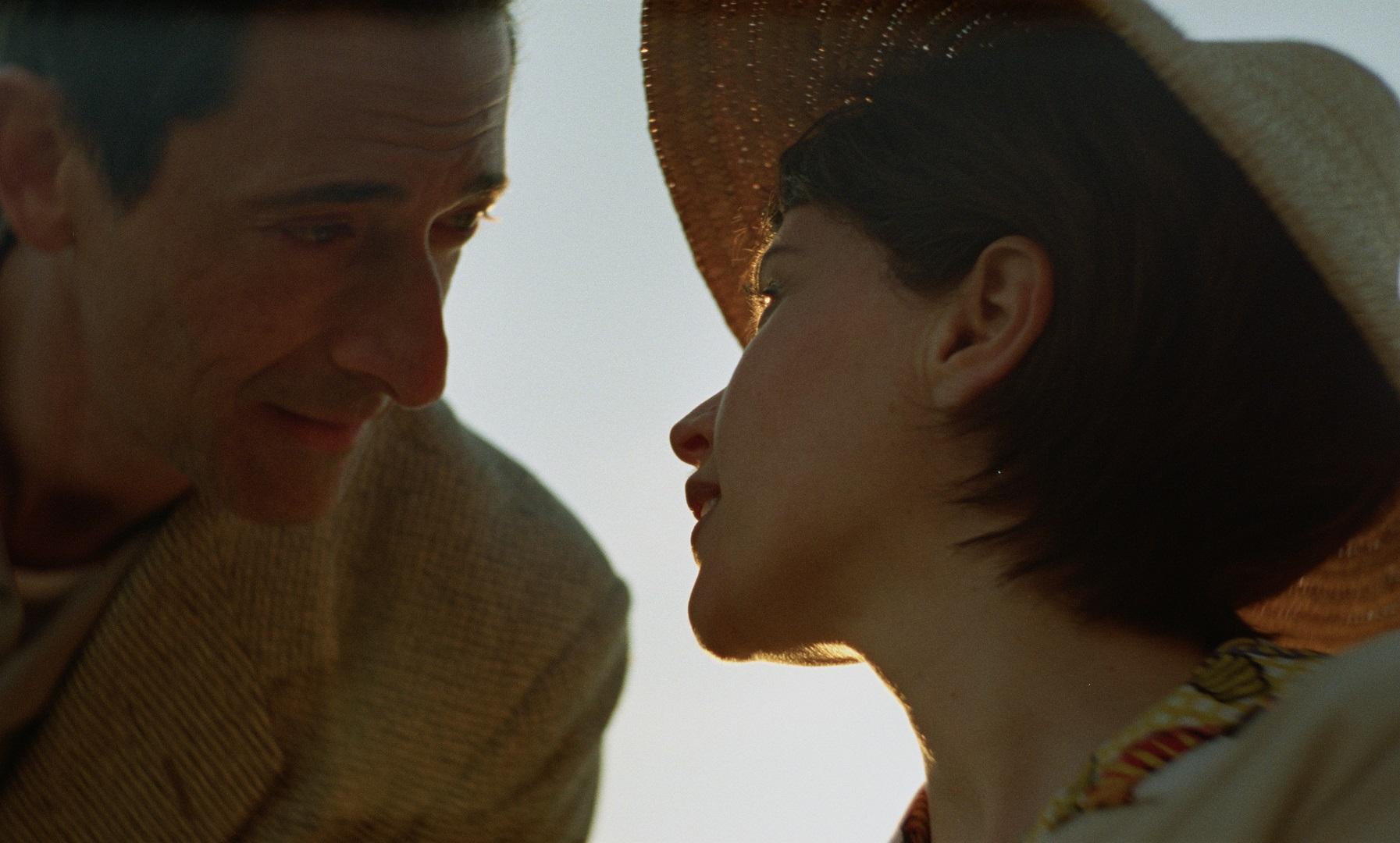Brady Corbet’s historical drama, The Brutalist, is epic in a scale in terms of its execution and the story being told, but it’s still only about 75% of a great movie.
The Brutalist
Directed By: Brady Corbet
Written By: Brady Corbet and Mona Fastvold
Starring: Adrian Brody, Guy Pearce, Felicity Jones, Joe Alwyn, Raffey Cassidy
Release Date: December 20, 2024
The Brutalist tells the story of László Tóth (Adrian Brody), a Holocaust survivor who immigrates to America during the post-war period, looking to start anew. His wife, Erzsébet (Felicity Jones), remains stuck in Europe, unable to join him. Despite his background in architecture and previously celebrated works, László finds himself with almost nothing.

Even so, he remains optimistic, especially as he lands himself a windfall thanks to an eccentric millionaire, Harrison (Guy Pearce). Harrison manages to see László’s brilliance and offers him the chance of a lifetime, including the opportunity to reunite with his wife.
The story takes place over a number of years, spanning different decades. It becomes clear that László’s “American Dream” is turning out to be anything but; even after reuniting with his wife. As his work building Harrison’s community center becomes an obsession that brings him into conflict with just about everyone.

Obviously, I’m being succinct here. It’s a LONG movie that’s just shy of four hours long, and that means I’m skipping out on just about all the nuance. The real “story” being told here, is a personal and intimate one. It’s told essentially through a series of slice of life sequences, edited together expertly to convey the big passages of time in subtle ways, while giving the characters the opportunity to simple exist.
It’s almost immediately engaging and hooked me in so well, by the time the built-in intermission came about, I didn’t even realize that much time had passed. It’s in this back half, however, that things stumble a bit.
I never imagined that a movie coming in a little over three and a half hours could still manage to feel rushed. And yet, that’s exactly what happens with the ending. I won’t go into specifics on the ending (something you should experience for yourself), but it comes to a close with an “Epilogue” scene several decades down the road.

László’s (now much older) niece, Zsófia is recounting her uncle’s life and accolades. It’s a speech that essentially re-contextualizes much of the film; specifically László’s motiviations and mindset. In many ways, it’s a revelation and had me rethinking keys scenes from earlier on. As a concept, it’s pretty great, in execution…well, it feels weird.
The film does a phenomenal job of showing László’s emotional journey. The film doesn’t hold your hand through these moments or hammer you over the head with what’s happening, but through these vignettes at different points in his life, and his grand work on Harrison’s community center, we see how his overall disillusionment grows.

There is the slow, steady realization that despite the seeming opportunities and windfalls, he’ll always be an outsider. And no matter what he accomplishes, the idealized “American Dream” will always be denied to him. It shows an impressive deftness for visual storytelling, as the scenes/dialog aren’t necessarily specific to any one incident or turning point. Rather it’s only visible when viewed as a whole on across the broader timeline.
Perhaps because this aspect is handled so wonderfully, it makes the ending’s Epilogue, all the more jarring. It feels so out of left field, not just because it marks the largest time jump in the film, but because it eschews this showing over telling approach and just gives us all the information in a single, expositional monologue.

Rather than feeling like a clever storytelling mechanic to make me want to revisit the film with the new information in hand; it feels like the filmmaker was grasping to find an ending. It’s not merely, how the epilogue is handled, that creates this rushed feeling. For about the last quarter of the film’s runtime, things begin happening in quick succession. The snippets of László and Erzsébet’s life become shorter, as the frequency of the jumps in time quicken. Giving us way more things to process, without the time to do so. The result are a series of revelations and important happenings that largely seem to take place off screen; inferred by the events we do witness.
You know that feeling when you’re telling a story to someone, or writing something down and you’re running out of time/room, so you begin to just knock out the highlights to wrap things up? That’s kind of how The Brutalist feels in the end. Somehow, despite it’s lengthy runtime, the bulk of which I was fully absorbed and invested, the ending still manages to be rushed.

It’s an odd feeling. Much as I love the bulk of the movie, the abruptness with which the ending comes about absolutely brings my overall thoughts on it down a few notches. Don’t get me wrong, there’s still plenty to celebrate here between some powerhouse performances and stunning prowess on the cinematography and editing side of things. There’s a reason it’s garnering so much Oscar buzz.
For me, however, it flubbed the landing. In doing so makes a film that feels only partially great.

